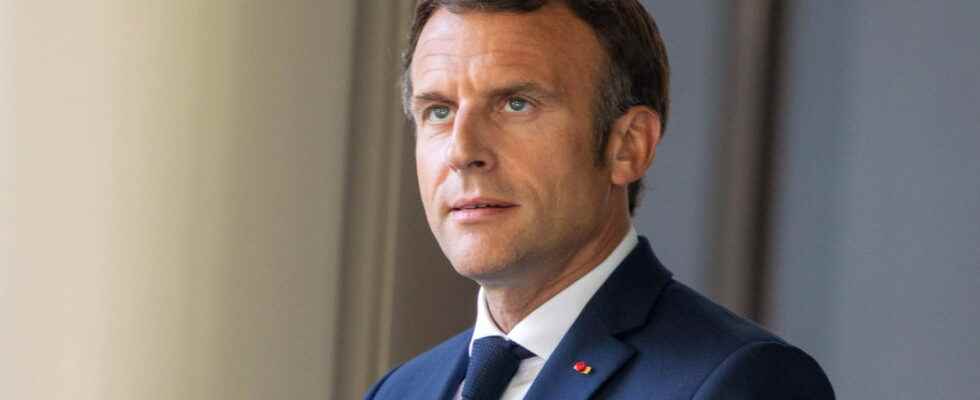MACRON. Obtaining an absolute majority in the National Assembly is not guaranteed for Emmanuel Macron. The Head of State must be prepared for a possible alliance in order to be able to carry out his policy.
Look for a legislative result near you
Emmanuel Macron is not sure of ending up with 289 deputies in the National Assembly on the evening of the second round of the legislative elections. The projections count on a wide range of 265 to 300 candidates of the presidential majority Together! elected against more than 350 during the first five-year term of the Head of State. This climate of uncertainty does not reassure the executive, especially since the ballot does not excite voters and since the Nupes, a coalition of left-wing parties, has managed to tickle the scores of the majority in the first round, to the point of to be able to claim a relative majority. The outcome of the legislative elections depends on the balance of power between the executive and the opposition and therefore the possibility for Emmanuel Macron to carry out his policy. How will he be able to govern if he finds himself in the minority in the Assembly? Different scenarios are possible.
An alliance of the majority with the right or the left?
Without obtaining an absolute majority of 289 deputies, Emmanuel Macron can see his candidates sit with a relative majority in the first group of the Assembly. This has already been seen in 1988 when, after the re-election of François Mitterrand, the Socialist Party had obtained only 275 seats in the hemicycle. At the time, Michel Rocard, Edith Cresson then Pierre Bourdon, who had succeeded each other in the office of Prime Minister, had to ensure negotiations with other parties, the communist group or that of the union of the center most often, to glean a few votes and have the texts of laws adopted. In 2022, the leader of Macronie could be faced with the same situation and send his Prime Minister Elisabeth Borne in search of support in the opposition groups at the cost of some compromises so that his policy can be implemented.
In this hypothesis of relative majority, the more moderate opposition groups know that they can play a pivotal role in the National Assembly and succeed in getting some of their measures passed in exchange for the support given to the power in place. This is what the group of Republicans aims for. The right ensures that it will sit in a “constructive opposition” which will not close the door to all the proposals of the presidential majority. But Emmanuel Macron could also play on the political past of his Prime Minister, formerly close to the left and the socialists, to convince some dissident voices in the group to join the majority on certain votes. Better, Emmanuel Macron can consider playing on both sides in a logic of “at the same time” to ensure additional votes sometimes on the right sometimes on the left according to the proposed project: rather economic or rather social.
Still, the oppositions are not required to play the game of negotiations. Discussions would then begin on each text, opening the way to an almost unprecedented political situation and which should, for sure, vitalize the democratic debate in a politically fragmented France. For the time being, the right-wing group is expected to have between 45 and 60 deputies against around fifteen for the various groups.
A recourse to 49.3?
In 1988, the use of 49.3 had been one of the solutions favored by the socialist presidential majority. The government had used on 28 occasions the article of the Constitution which allows the adoption of a text of law without the approval of the National Assembly. Only, today an outrageous recourse to 49.3 is no longer possible. The constitutional reform of 2008 strictly restricted the use of the article to finance bills or the Social Security budget, above all the political weapon can only be used once per parliamentary session (a session corresponds to , maximum, 120 days per year). What limit the field of action. Unless Emmanuel Macron obtains the majority?
Will Emmanuel Macron have to change Prime Minister?
The renewal of the Prime Minister after the legislative elections is a subject that raises questions. Emmanuel Macron could indeed have to separate from Elisabeth Borne to appoint someone else to Matignon, but this scenario is only valid if an opposition group obtains an absolute majority and imposes cohabitation on the head of state. . Then, the President of the Republic will have to appoint a Prime Minister in phase with the majority political formation. On the other hand, in the event of a relative majority obtained by the opposition or by the presidential camp, Emmanuel Macron will be able to govern with Elisabeth Borne as head of government.
